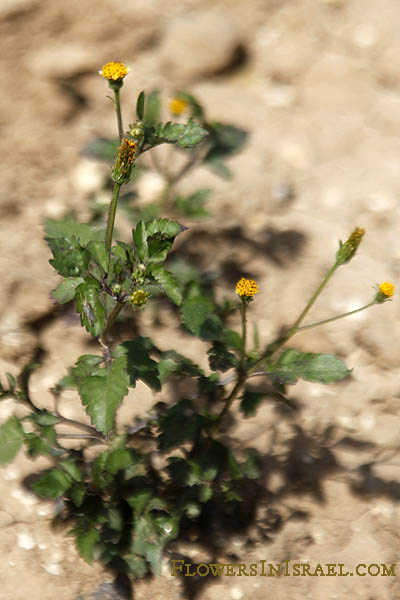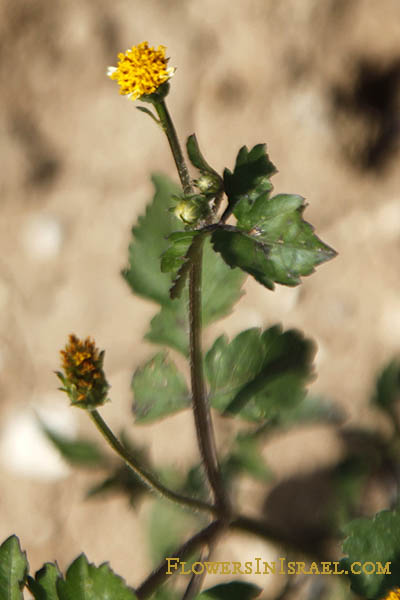Potato weed, Gallant-soldiers, Small flowered galinsoga,
Hebrew: גלינסוגה קטנת-פרחים
| Scientific name: | Galinsoga parviflora Cav. | |
| Common name: | Potato weed, Gallant-soldiers, Small flowered galinsoga | |
| Hebrew name: | גלינסוגה קטנת-פרחים | |
| Plant Family: | Compositae / Asteraceae, מורכבים |

Location: Sea of Galilee, Mount of Beatitudes |
| Life form: | Annual | |
| Stems: | 30-60 cm tall, erect or spreading, much branched, slender, hairy | |
| Leaves: | Opposite, entire, lanceolate to ovate, dentate or serrate | |
| Inflorescence: | Numerous small flower heads, scattered at ends of branches | |
| Flowers: | Polygamous,small flowerheads with centres of yellow disk/tubular florets surrounded by several (usually 5) small white ray florets | |
| Fruits / pods: | Ray florets fruit, an achene, 2mm long, slightly hairy, with or without a pappus of short bristles; disc florets fruit, an achene, 1.8mm long, slightly hairy, with a pappus of hairy-edged scales that are 1.5mm long | |
| Flowering Period: | January, February, March, April, December | |
| Habitat: | Cultivated areas; weeds | |
| Distribution: | Mediterranean Woodlands and Shrublands, Semi-steppe shrublands | |
| Chorotype: | American | |
| Summer shedding: | Ephemeral |

Location: Sea of Galilee, Mount of Beatitudes Derivation of the botanical name: Galinsoga, after Mariano Martinez Galinsoga, 1766-1797, Spanish court physician and Director of the Madrid Botanical Garden. parviflora, parvus, small, little, insignificant; florus, floreo, to bloom, to flower; small flowered.
|